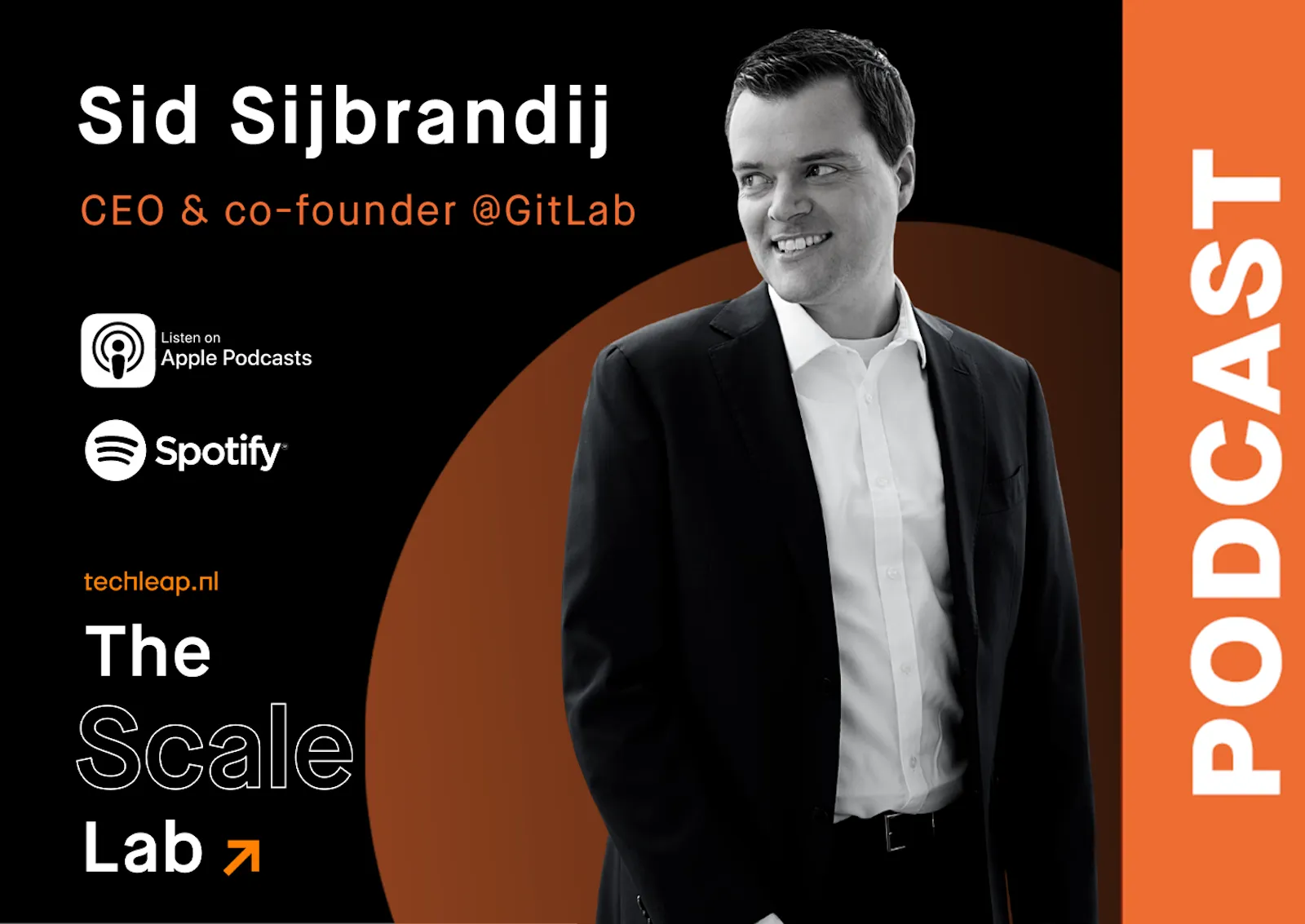December 21, 2023
From a submarine engineer to a successful CEO: How Sid Sijbrandij redefined the world of SaaS with GitLab

00:00:30 – I think I’ve always been drawn to entrepreneurial activities. When I notice an opportunity, my first thought often is: if that doesn’t exist, let’s start making it. That’s what also happened when I noticed GitLab, which was a really cool and promising project. But there was no company around it. So I went out and started a company.
A year later – Dmitri – my co-founder, tweeted: “I want to work full-time on GitLab.”
So I sent him an email to join forces and discuss further steps.
00:05:50 – The way I personally see it, is that I want to own the critical parts of the value chain. You want to own everything that regards your brokerage business, and there is a simple reason for it. The only way to keep that competitive edge, as well as the agility and the fast development pace, is by owning the key business elements yourself. Once you depend on another company, you will lose that competitive edge.
00:09:49 – The most important thing we did is create virality. In our early days, we created a reward system, where a current customer was rewarded if they brought a new person to BUX. Our growth was pretty stable, but when we introduced this new rewards programme, people had an incentive to invite their friends to join BUX. Our main goal was to create awareness because we believed that a good product should sell itself.
Of course, if you really want to establish hypergrowth, you need a critical mass of clientele. Initially, we didn’t have the cash to deploy significant marketing money. So we established a base of early adopters and then started this reward programme in order to generate this snowball effect a little bit. These days, you need a critical mass per country in order to get that virality going. And for that, you need to do marketing.
Sid Sijbrandij, CEO & Co-Founder of GitLab
00:19:34 – I think it’s the investors’ job to keep pushing the management team as much as they can to deliver on the ambitions that they set. I’m a very ambitious person, so I set my goals extremely high. And you will probably see if you look at interviews that I’ve done before, that I’m talking about millions of customers and I generally feel that way. I do believe that we [BUX] should be the European number one.
00:23:06 – I think it’s all about expectations management. You need to set expectations for your board and clearly outline who is in the lead. Of course, we can vote if you are not happy with something, but it’s ultimately me making the final call.
That said, we had the luxury of choosing our investors. For a very specific reason, we chose Prosus Ventures and Tencent. It’s great to have them as an investor because they are a massive company with a dedicated team of people helping you out with a variety of things, such as recruitment, PR, media, etc.
00:32:18 – We make sure to provide our employees with stock option plans as well as provide non-financial benefits, such as team-bonding events, lunches, pension plans, flexible work environment, etc. So we’re doing a lot of stuff to make sure that we retain them. There’s one thing I do want to mention as well – obviously, in the Netherlands, as a fintech firm, it is quite difficult sometimes to find really experienced senior people. But with a flexible work policy, we are open to hiring talent outside the Netherlands too.
Talking about diversity – already in 2016 – we told ourselves that diversity plays a very important role in the hiring process. I firmly believe that a diverse team is a better-performing team. And at some point, I said that we need a gender & ethnically diverse management team. It was a hard target we set for ourselves and thus made it happen. Diversity brings different points of view and perspectives on the same things, which is very beneficial for the company’s multiculturalism & international growth.

 Achieving Scale and Profitability as a Dutch Tech Company
Achieving Scale and Profitability as a Dutch Tech Company